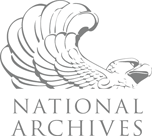 Web Content Display
Web Content Display
"Never Again IS Now"
Teachers Conference
L'dor v’dor
Passing the Lessons of the Holocaust
From Generation to Generation
Audience:
Teachers with interest in exploring news ways to teach about the Holocaust using primary sources and proven strategies. Or people interested in how students are being told and taught about the Holocaust.
Registration:
Teachers can register by emailing the Library’s Education Specialist Jeffrey Urbin at Jeffrey.Urbin@nara.gov. Registrants can attend however many sessions as their schedule allows.
Attendance certificates can be acquired for those seeking to earn professional development credit.
Essential Questions:
How and why did the Holocaust happen?
Why do we study the Holocaust?
What factors shaped America’s response to the Holocaust?
How did America’s response to the Holocaust change over time?
What did Americans know about the Holocaust as it was occuring?
What secures democracy and what makes it fragile?
What motivates people to stand up for those in need; what inhibits people’s empathy and actions in response to cries for help?
How does group hatred develop and what can it lead to?
How do societies remember the past and how do such memories affect choices?
What lessons from the Holocaust can students apply to their lives today?
Agenda:
8:00 - 8:45 AM Plenary Session: Opening Video “What Do You Know About the Holocaust? - Paula and David 3 G NY Discussion
Bringing Holocaust lessons to life: Descendants of Survivors Share Memory, Legacy, and Responsibility
3GNY is an educational organization that brings together “3G”s - third-generation descendants of Holocaust survivors - to educate diverse communities about the perils of intolerance. As a living link to survivors, 3Gs build personal connections with students to the stories and lessons of the Holocaust, while connecting historical events to contemporary issues of intolerance and persecution. Dave Reckess, Executive Director of 3GNY, along with his mother, Paula Reckess, will share about the transmission of their family legacy through the generations, and the lasting impact 3G stories have on today’s students.
9:00 - 9:45 AM Session One: Civic Engagement & the Holocaust - Jeff Urbin
This session explores how the systematic breakdown and elimination of civic norms in areas controlled by the Nazis in the 1930s and 40s led to the state-sponsored, systematic persecution and murder of roughly six million European Jews. Participants will learn how prejudice, intolerance, scapegoating, hate speech and fear were used then, and are being employed again today to persecute and intimidate.
10:00 - 10:45 AM Session Two: Precursors: Ideologies Leading to the Holocaust - Dr. Abby Gondak
This text-study workshop utilizes readings from a college-level course I have taught called Nazism and the Holocaust in order to assist teachers in identifying and teaching (high school) students the ideological causes that led to the Holocaust, and other forms of genocide. I will share with teachers an assignment I have utilized in my courses called "Critical Reading Analysis" in which I ask students to identify the Argument (Claims), Organization (Structure of Argument) and Evidence used by authors. We will be examining texts that emphasize several antisemitic narratives about Jews that were used to justify the Holocaust. This workshop also provides further reading suggestions and online resources for teachers when developing lessons related to this topic.
11:00 AM - 1:00 PM Working Lunch Period
Discussion about using resources in the classroom
Virtual tours of Library/Museum - Possible Document Display
Screening of film "Nuremberg"
Virtual chat time with the presenters
1:00 - 1:45 PM Session Three: Presentation by Echoes and Reflections
How do we create impactful and thoughtful learning of the Holocaust with students? In this session, participants explore and gain access to a range of classroom content and consider instructional enhancements to support students' study and reflection of the history of the Holocaust and its ongoing meaning in the world today. Educators enhance their own knowledge about the Holocaust, including the history of antisemitism, and build confidence and capacity to teach this complex subject.
2:00 - 2:45 PM Session Four: Presentation by the US Holocaust Museum
What are factors that led to the Holocaust, what are some enduring questions and themes today that resonate from the 1930s and 1940s? How does learning about the Holocaust provide a means to build on historical and critical thinking skills? This session provides an overview of resources from the US Holocaust Memorial Museum, including lesson plans and primary and secondary sources of information to analyze and contextualize this history.
2:45 - 3:00 PM Wellness Check and Goodbyes




